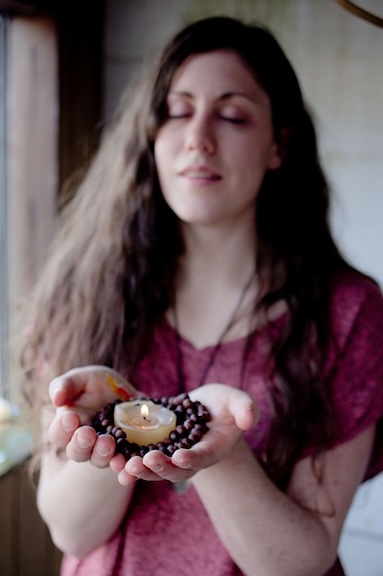"If You Really Loved Me, You Wouldn't..."
By Dr. Margaret PaulAugust 16, 2011
How often do you tell yourself that another's uncaring behavior means that this person doesn't care about you?
 How often have you had the thought, "If you really loved me, you wouldn't...
How often have you had the thought, "If you really loved me, you wouldn't...
- Get angry, yell, curse, call names, say mean, untrue things about me
- Project your behavior onto me
- Withdraw, run away, shut down, sit spaced-out in front of the TV
- Resist doing what I ask you to do
- Look at other women, have an affair
- ____________________ (fill in your own)
I used to have this thought all the time. If someone yelled, blamed me, shut me out, didn't see me accurately, or went into resistance, I would think, "You don't care about me. If you cared about me, you wouldn't treat me this way. How can you say you care about me and then treat me this way?" Sometimes I would even say this out loud. And always I would feel deep loneliness and heartache at being treated this way.
Then one day I suddenly saw all this uncaring behavior in a completely different light. I saw clearly that it had nothing to do with me! It wasn't about me at all!
This thought totally stunned me. It's not that I previously didn't understand that I shouldn't take others' behavior personally. I had known this for years and thought I was practicing not taking their behavior personally. But I didn't realize that I still had the unconscious thought that if someone loved me or cared about me, they wouldn't act that way in the first place.
Sometimes we learn something and then suddenly we learn it on a much deeper level. And when we do, we realize that we had never quite gotten it before - even though we thought we had. This was the case with this deeper understanding. In that moment, I went from understanding that others' unloving behavior was not about me, to feeling this truth deep within me. And this deeper level of knowing shifted everything for me.
This kind of deeper awareness is a moment of Grace.
At that moment, I went from feeling like a victim of a loved ones' uncaring behavior to just being able to observe it without taking it personally. I was able to see that it was coming from their fear and insecurity and to have compassion for whatever difficulties they were having. I saw it as a 5-year-old acting out, rather than as an adult being abusive. I became able to easily disengage from this uncaring treatment, without the hurt I used to feel.
Sure, it still feels lonely when a loved one acts this way, but now iI feel compassion, as I realize how often I've acted out in the same unloving way.s
What a relief to no longer feel uncared about when a loved one acts out from their ego wounded self! What a relief to know that he or she actually does really care about me - just not necessarily in the moment that they are triggered into some fear and need to control. What a relief to no longer tell myself that this person doesn't care about me. Knowing deep inside that the other person's behavior isn't about me - that it's 100% about them not dealing with their feelings in a loving way with themselves and with me - feels incredibly freeing!
The narcissistic aspect of our ego wounded self loves to believe that others' behavior is about us. I hope the next time someone is uncaring toward you, you have the moment of Grace that allows you to see below the surface, so you can experience the inner peace that comes from knowing that it's not about you.
Heal your relationships with Dr. Margaret’s 30-Day online video relationship course: Wildly, Deeply, Joyously in Love.
Image by AsherLeigh from Pixabay
 Send this article to a friend
Send this article to a friend  Print this article
Print this article  Bookmarked 6 time(s)
Bookmarked 6 time(s)
| Related Articles |
|---|
| When Should You Take It Personally? |
| Discover Your Level of Narcissism |
Comments
| Author | Comment | Date |
|---|---|---|
| Join the Inner Bonding Community to add your comment to articles and see the comments of others... | ||

Daily Inspiration
Today, notice what you do to avoid painful feelings. Do you stay in your head instead of in your body? Do you keep your breath shallow? Do you get angry, withdrawn, judgmental? Do you use food, alcohol, drugs, sex, spending, gambling, work, TV? Today, compassionately embrace and learn from your feelings rather than avoiding them, and see how you end up feeling.
By Dr. Margaret Paul

 Share with Del.icio.us
Share with Del.icio.us Share with Digg
Share with Digg







